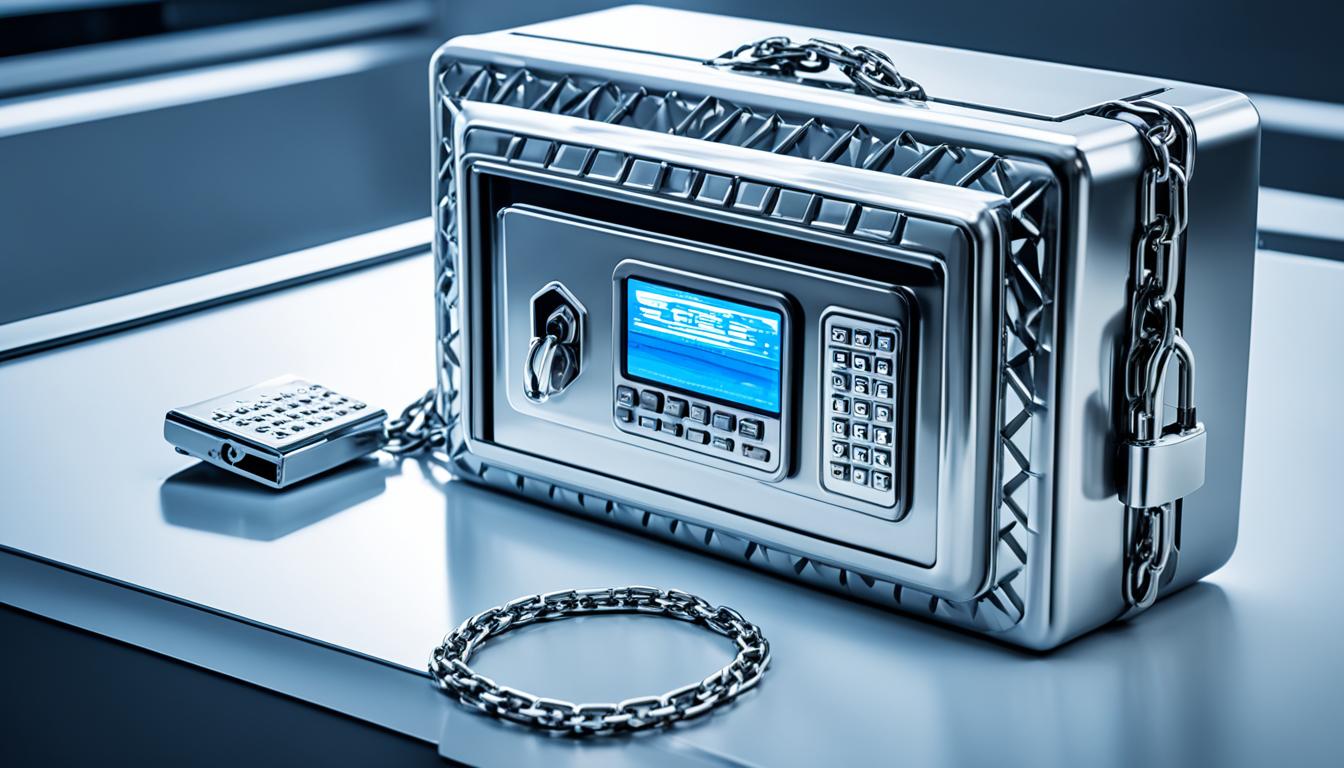Did you know that cybercriminals stole approximately $1.9 billion worth of cryptocurrency in 2020? The rising popularity of digital assets has made them a prime target for hackers, emphasizing the importance of robust security measures in the world of cryptocurrency. While the decentralized nature of blockchain technology provides inherent protection, it’s the wallets and exchanges used to interact with cryptocurrencies that are vulnerable to cyber attacks.
In this article, we will explore essential tips for staying safe while dealing with cryptocurrency. From choosing the right wallet to securing your passwords and staying vigilant against phishing scams, we’ll equip you with the knowledge and tools you need to protect your digital assets.
Key Takeaways:
- Choose a secure wallet: Consider using a hardware wallet or a paper wallet to store your cryptocurrency offline and minimize exposure to cyber attacks.
- Create strong passwords: Use long and unique passwords for your wallets and exchanges, and consider using a trusted password manager to securely store them.
- Enable two-factor authentication: Add an extra layer of security to your exchange accounts by enabling two-factor authentication, which requires a verification code in addition to your password.
- Stay vigilant against phishing scams: Be cautious of suspicious emails, websites, or messages that attempt to steal your sensitive information. Always verify the legitimacy of the source before providing any personal or financial details.
- Stay informed and continuously learn: Stay updated on the latest security best practices and consider educating yourself through cybersecurity degree programs to enhance your knowledge and expertise in safeguarding your digital assets.
Safeguarding Your Cryptocurrency: Best Practices
To safeguard your cryptocurrency, it is important to choose the right wallet. There are two main types: hot wallets and cold wallets. Hot wallets are connected to the internet, making them convenient for daily transactions but more susceptible to hacking. Cold wallets, such as hardware wallets and paper wallets, store your assets offline, providing a higher level of security. Using a hardware wallet, like Ledger Nano S or Trezor, is recommended for maximum security.
It is also crucial to strengthen your passwords, enable two-factor authentication for your exchange accounts, and be cautious of phishing scams. Regularly updating software, safeguarding your private keys, and diversifying your storage can further enhance the security of your cryptocurrency.
Additionally, staying informed about the latest security best practices and considering multisignature wallets can help mitigate risks and protect your digital assets.
The Importance of Cryptocurrency Security Education
In the ever-evolving landscape of cryptocurrency and cybersecurity, staying ahead of potential threats is crucial. Continuous education and adaptation are necessary to navigate the digital financial landscape safely. Institutions like EC-Council University offer cybersecurity degree programs that can enhance knowledge and expertise in securing digital assets.
By combining the best practices outlined in this article with educational resources provided by institutions like EC-Council University, individuals can confidently protect their investments and personal information while navigating the world of cryptocurrencies. It is essential to recognize that securing cryptocurrency is a multi-faceted process that requires attention to detail, vigilance, and staying informed about the latest developments and threats in cybersecurity.
Investing in cybersecurity education provides individuals with the skills and knowledge to identify potential vulnerabilities, implement effective security measures, and respond to emerging cyber threats. Continuous learning ensures that individuals stay abreast of the latest techniques used by cybercriminals, enabling them to proactively safeguard their digital assets.
FAQ
Why is cybersecurity important for cryptocurrency?
What types of wallets can I use to safeguard my cryptocurrency?
What is a hardware wallet?
How can I enhance the security of my cryptocurrency?
What should I be cautious of regarding cryptocurrency security?
Why is continuous education in cybersecurity important for cryptocurrency users?
What educational resources are available for cryptocurrency security?
How can combining best security practices and educational resources protect my cryptocurrency?
Source Links
- https://www.eccu.edu/blog/cybersecurity/cryptocurrency-cybersecurity-how-to-store-your-crypto-safely/
- https://techcabal.com/2023/11/01/cybersecurity-in-online-betting-and-cryptocurrency-a-10-step-guide-for-ensuring-your-safety/
- https://www.kaspersky.com/resource-center/preemptive-safety/strengthen-cryptocurrency-security

Leave a Reply